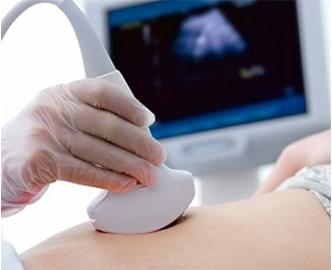
What Is the Purpose of Doctor's Visit Before Pregnancy?
The goal of a doctor's visit right before pregnancy is to identify the existing and potential risk factors for the mother-to-be and, if necessary, take medical precautions. Once these risk factors are under control, the pregnancy can begin. Folic acid supplementation is recommended from the moment pregnancy is planned. It should be started approximately 3 months before conception. After conception, folic acid will not reduce neural tube defects. Smear tests should also be performed to check for any cervical pathologies.
What Are the Risk Factors During Pregnancy?
• Chronic diseases (hypertension, diabetes, epilepsy, thyroid issues)
• Gynecological diseases (fibroids, ovarian cysts, infections)
• Eating habits
• Smoking, alcohol, and drug use (substance abuse)
• Previous pregnancy complications (miscarriage, ectopic pregnancy, birth defects, consanguinity)
What Is the Best Time to Get Pregnant?
For a woman with a regular menstrual cycle of 26-30 days, the most suitable time to get pregnant is around the 12th to 15th day after the first day of her last period. Ovulation generally occurs within this window.
Should You Immediately Visit a Doctor If Your Period Is Late?
If you notice a delay in your period, it's important to visit a doctor for a healthy pregnancy start. The doctor will perform an examination and ultrasound to determine whether the pregnancy is inside or outside the uterus (ectopic pregnancy) and confirm the duration of pregnancy.
How Is Pregnancy Duration Calculated?
Pregnancy duration is calculated from the first day of the woman’s last menstrual period. The average pregnancy duration is 40 weeks or 280 days.
Are There Any Risks with Vaginal Ultrasound?
Research indicates that ultrasound has no negative effects on the health of either the baby or the mother. In the first trimester of pregnancy, vaginal ultrasound provides clearer results. Therefore, an ultrasound examination is essential.
Are There Any Risks with Vaginal Examination?
No. Vaginal examination using a speculum does not carry any risks.
How Often Should Pregnancy Check-ups Be Done?
For the first seven months, monthly visits are recommended. If there are risk factors, visits may be increased to every 2-3 weeks. During each visit, blood pressure and weight are measured. The doctor may request necessary laboratory tests. In high-risk pregnancies, visits may become weekly in the last month.
What Tests Are Performed During Pregnancy?
After the baby's heartbeat is detected, the following tests can be done:
-
Full blood count, urinalysis, blood group of the mother and father, fasting blood sugar, TSH (thyroid function)
-
Rubella, Cytomegalovirus (CMV), Toxoplasma (especially if there are pets like cats or dogs), Hepatitis B & C tests, AIDS (Eliza test)
11-14 Weeks: Double Test (Down Syndrome Screening Test)
16-18 Weeks: Triple Test (Risk of Down Syndrome, Spina Bifida, and Trisomy 18)
If test results are suspicious or if the mother is over 35 years old, chorionic villus sampling or amniocentesis may be recommended.
22-24 Weeks: 2nd level or 4D ultrasound and Doppler examination to assess the risk of anomalies.
24-28 Weeks: Gestational diabetes test is performed to diagnose pregnancy-related diabetes and provide necessary treatment.
32 Weeks and Beyond: Non-Stress Test (NST) may be applied based on pregnancy risk factors to check fetal heart rate and uterine contractions.

